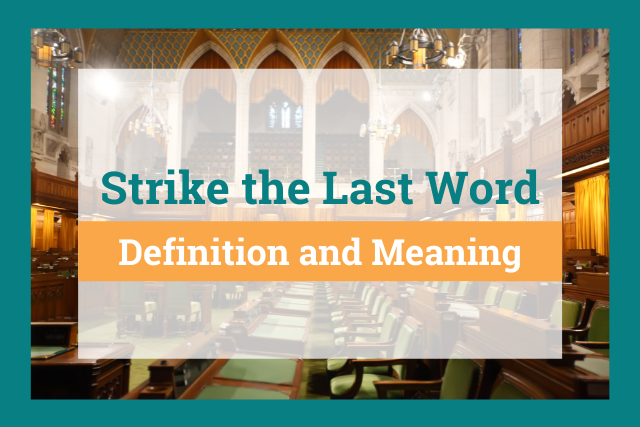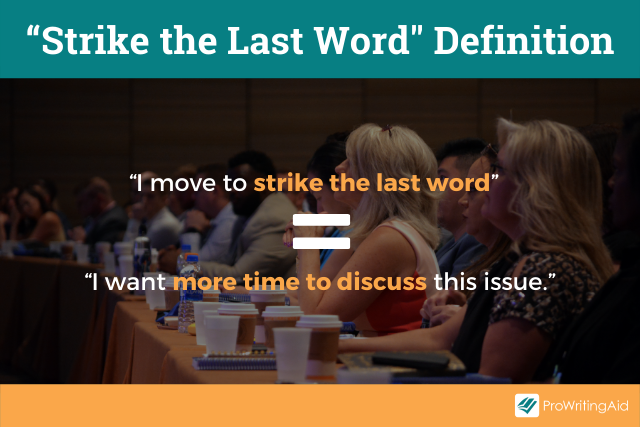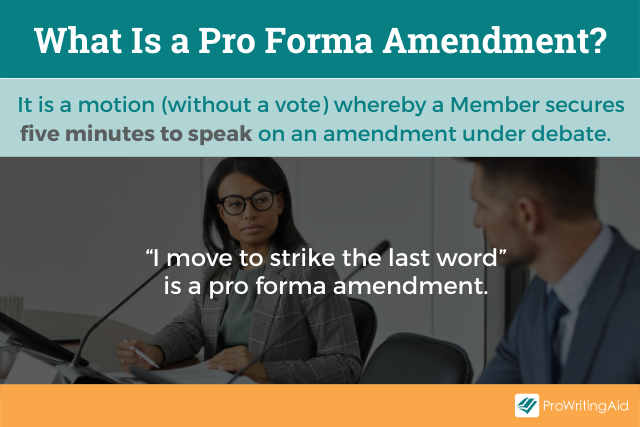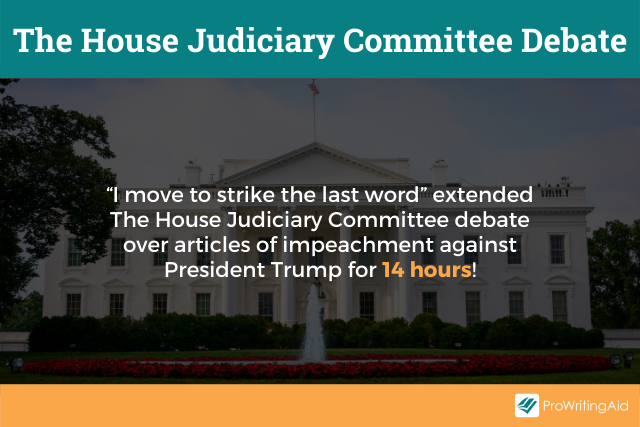
In recent US history, our leading politicians have inspired some serious House Judiciary Committee hearings. I’m looking at you, President Donald Trump.
My guess is that most citizens don’t regularly watch these hearings. Impeachment hearings for a president, however, inspire interest. And when members of the House Judiciary Committee say “I move to strike the last word!” the hearings also inspire confusion.
Essentially, the statement means “I want to speak and keep the discussion going.”
What Does “I Move to Strike the Last Word” Mean?
In typical political fashion, “I move to strike the last word” doesn’t mean what it seems to say. No one is actually requesting to strike a “last word,” or any other word.
The person who makes the statement is using a parliamentary phrase to express their desire to speak and extend the five-minute limit on discussion of an issue.
Stated plainly, “I move to strike the last word” means “I want time to talk about this further.”

What Does Saying “I Move to Strike the Last Word” Do?
In a report titled “Speaking on the House Floor: Gaining Time and Parliamentary Phraseology,” the Congressional Research Service explains that a House member offering an amendment has five minutes to explain it.
If a member wants to oppose that amendment, they also have five minutes to express their counterpoint.
When members want to extend the discussion of the issue, they can use pro forma amendments to “strike” one or more words from the text, making the amendment “incomplete.”
The suggestion to strike, though, isn’t literal. No one is actually removing or seeking to remove words from the text. They want more time to discuss the substance of the issue.
In an article focusing on the “I move to strike the last word” statement, Noreen O’Donnell quotes Bill Shcute, interim director of the Washington Center of the LBJ School of Public Affairs at The University of Texas. He describes the statement as “an old trick to allow members a chance to speak for five minutes additional.”
What Is a Pro Forma Amendment?
“I move to strike the last word” is a pro forma amendment. But what does that mean?

To review, we know that the rules of congressional procedure allow a member five minutes to explain an amendment. If an opposing member stands and states “I rise in opposition to the amendment,” they get five minutes to explain their side.
That’s only ten minutes of discussion. Anyone who watched the House Judiciary Committee hearings knows they went on longer than ten minutes. How? With a loophole–more respectfully known as the pro forma amendment.
The Congressional Institute’s Congressional Glossary defines a Pro Forma Amendment this way:
A motion whereby a member secures five minutes to speak on an amendment under debate in the Committee of the Whole. The Member gains recognition from the Chair by moving to “strike the last word.” The motion requires no vote, does not change the amendment under debate, and is deemed automatically withdrawn at the expiration of the five minutes of debate.
The pro forma amendment, “I move to strike the last word,” is almost like saying “Open Sesame,” or “Abracadabra!”
Uttering it magically gives speakers more time to debate.
The House Judiciary Committee Debate
On December 12 2019, the House Judiciary Committee debated two articles of impeachment against President Donald Trump for 14 hours! All thanks to the power of “I move to strike the last word.”

The statement became a sort of joke among reporters, like the aforementioned Noreen O'Donnell, who titled her article, “If ‘Strike the Last Word' Was an Impeachment Drinking Game, No One Would Survive.”
Other outlets produced video montages of House members using the phrase again and again.
To politicians, “I move to strike the last word” is a tradition. Though the rest of us might see that tradition as more of a maneuver, loophole, or technicality, to politicians, it’s part of the process.

